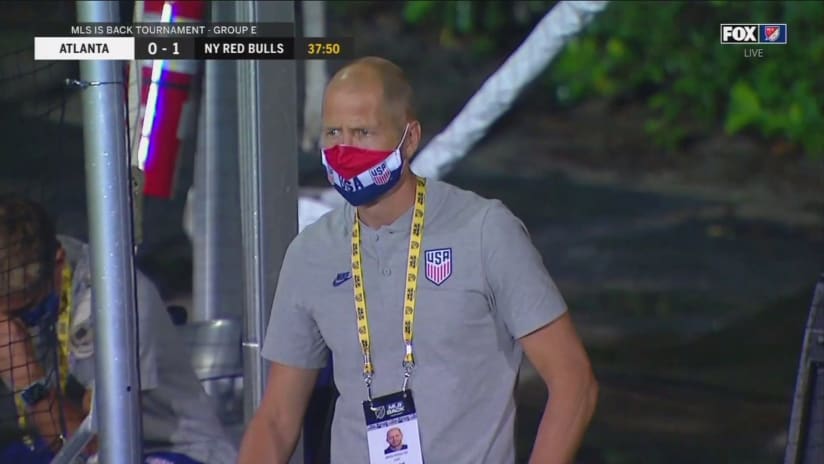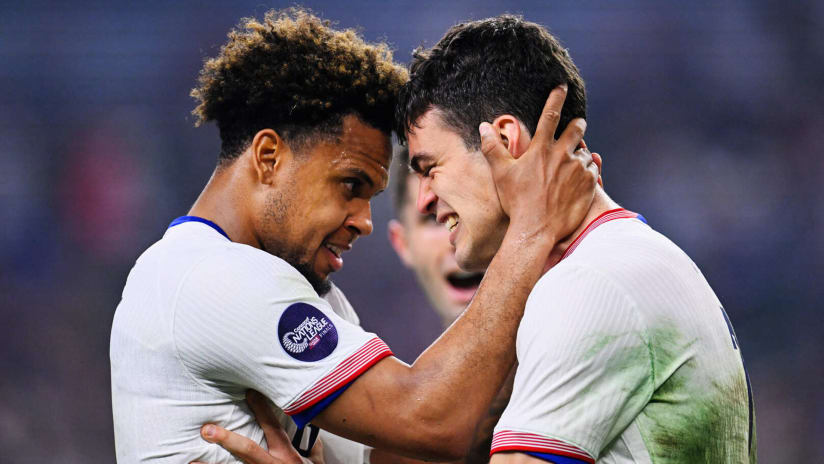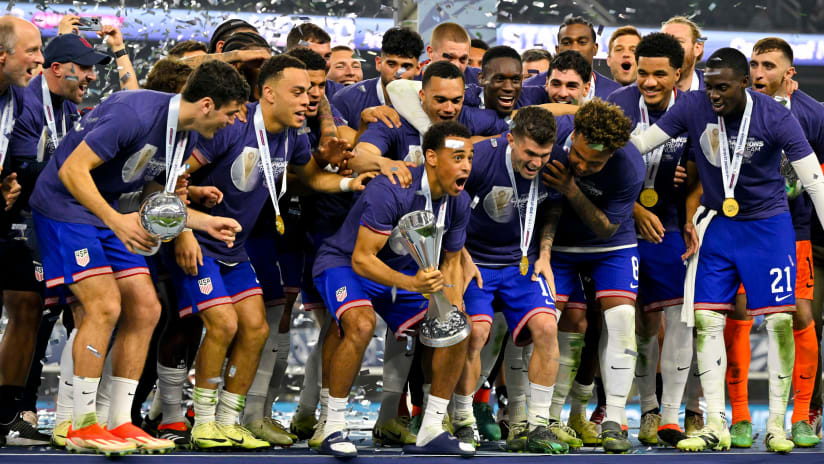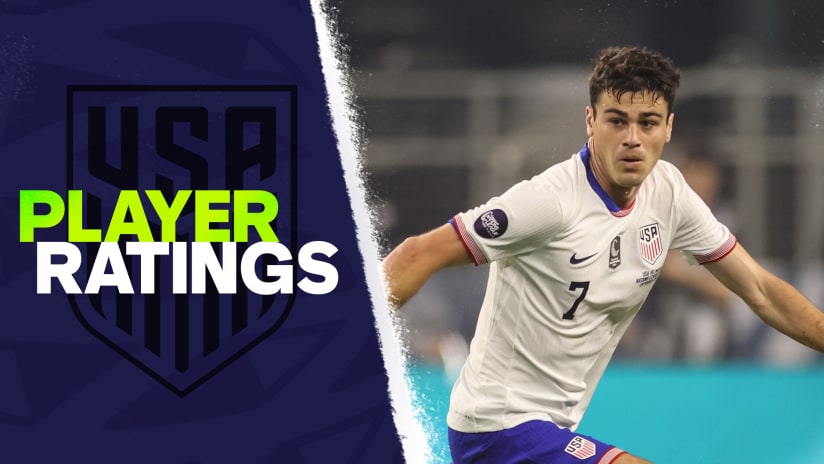As anyone who’s watched an MLS is Back Tournament broadcast or two has learned by now, Gregg Berhalter is in the bubble in central Florida and attending many of the event’s matches, typically from a fieldside vantage point with a U.S. Soccer face covering.
On Tuesday afternoon the men’s national team head coach explained some of his experiences and observations from the tournament in a virtual roundtable with reporters, citing a number of standout players as well as broader lessons that may be put to use whenever the USMNT returns to action following a long layoff imposed by the coronavirus pandemic.
“It would be kind of silly for us to say, ‘OK this player’s stock has risen X amount and this player’s stock has dropped X amount’ on players that haven't played in a while, are playing in these conditions and are a little bit rusty and haven’t been with their teams for so long, considering the circumstances. So what we're doing is observing,” said Berhalter.
“We're looking at how the players are performing. We're looking at how the players are dealing with adversity. I mean, think about some of the conditions they're playing in. Some teams have shorter rest. Some teams are playing the [9 am] games, some teams are playing the 10:30 [pm] games, and just seeing how players are processing that as individuals, how they're able to work through that. So that's been interesting.”
MLS is Back is also serving as a laboratory of sorts, for rule changes like the expansion of substitutions from three to five per team per game as well as the challenge of rotating lineups and keeping players fit and fresh during match schedules more compacted than the norm.
In that context, Berhalter alluded to New England Revolution coach (and his USMNT predecessor) Bruce Arena’s decision to bring usual starters Gustavo Bou and Cristian Penilla off the bench in their scoreless draw with Toronto FC on Tuesday morning.
“Looking at how the coaches are using their substitutions, how five substitutes can potentially impact the game,” noted Berhalter, “knowing that the players aren't fit, how do you make an impact on the game with your substitutes? I thought Bruce did something interesting today, knowing it was going to be a really hot game, saving two of his highest performers for later in the game to potentially go for the win. I thought that that was an interesting tactic. So just observing all of this.”
The former Columbus Crew SC boss was frank about the pros and cons of watching at field level and has augmented that viewpoint with film footage from higher up. MLS players can rest assured that he’s got eyes and ears all over.
“I get to hear the communication of the defenders with the goalkeeper,” said Berhalter. “I get to always hear the communication of the goalkeeper, that's interesting, like what goalies in the league are communicating a lot, which have good presence in the goal, what goalies are giving good information, what center backs are loud, the fullbacks, how they're connected to the backline, how their one-v-one defending is, wingers, how aggressive they are taking players on in wide areas, you get to see that really clearly.”
In terms of specific US-eligible players, Berhalter mentioned Ayo Akinola, Chris Mueller, Gyasi Zardes, Darlington Nagbe, Jordan Morris, Jackson Yueill, Sebastian Lletget and Brenden Aaronson as distinguished performers thus far.
Most of those players have already been called up during Berhalter’s USMNT tenure and gotten at least a taste of his system, and the coach admitted that the uncertainty around Concacaf’s World Cup qualifying process for 2022 may complicate newer faces’ prospects of vaulting into contention for a significant role on the squad.
“We talk about games of consequence, right? if you're talking about a qualifier, it may be difficult for a really young player who hasn't had that experience or isn't playing at a really high level to be called on right now,” he said. “But we also have to be careful, because we have the tendency – and myself as well – to get ahead of ourselves.”
Berhalter expects that Concacaf qualifying could kick off as early as November and believes that, even with the delays caused by COVID-19, the confederation has enough time to execute the Hexagonal format that was originally planned for this cycle. But much remains unsettled and unconfirmed, including the prospects of the USMNT gathering again this year as well as the fate of the traditional January camp in winter, with club soccer likely to take precedence for the near future.
“We're just working through what's going to happen this fall and then potentially January,” explained Berhalter. “We’ll have to see what happens with leagues, when the startup is. … all the international calendar, as far as I'm concerned, is going to depend on where the leagues are at. We’re going to have to be working in lockstep with the leagues, in this case MLS.”













